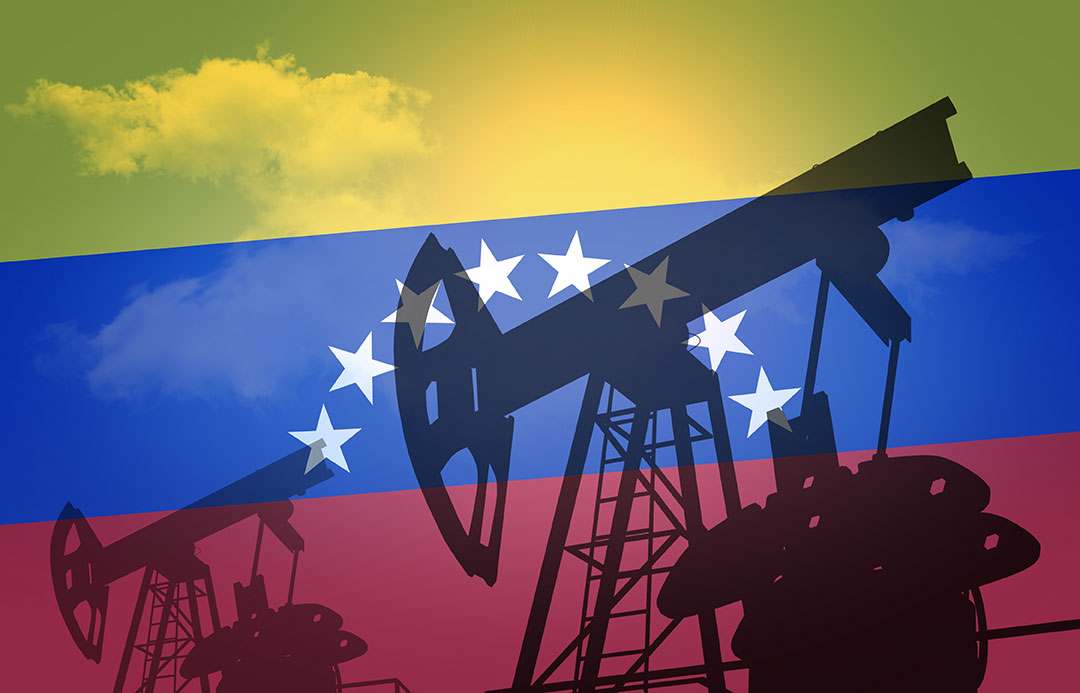Venezuela Needs $58 Billion to Restore Crude Output to 1998 Levels
CARACAS (Reuters) — Venezuelan state oil company PDVSA would need $58 billion in investment to revive its crude production to the levels of 1998 before ex-President Hugo Chavez came to power, equivalent to 3.4 million bpd, a document seen by Reuters shows.
In the February 2021 document entitled "Investment Opportunities," Petroleos de Venezuela's planning and engineering division said it was seeking capital investment from Venezuelan and foreign partners, mostly to recover and upgrade oil production infrastructure "under new business models."

PDVSA estimated that $7.65 billion is needed for reviving pipelines, projects for gas injection to oilfields, terminals and refineries that are idled or underperforming due to lack of maintenance.
The main new partnership model PDVSA detailed in the document was the use of production services agreements (ASPs).
Under these deals, contractors would finance 100% of operations in the oilfields and in return would receive a portion of the project's free cash flow as payment. The Venezuelan state would remain the full owner of the fields and the associated infrastructure.
The crisis-stricken South American nation produced just 578,000 bpd of crude in March, according to figures the country provided to OPEC, well below the 2021 goal set in the document of 1.28 million bpd.
The proposal comes as President Nicolas Maduro is seeking to mend ties with the private sector to attract investment to rebuild the OPEC nation's collapsing economy, in a reversal of tightening state control under Chavez's socialist model.
Venezuelan oil industry's top three goals, according to the document, are to "stabilize and recover crude and gas output," "restore reliability, safety and quality of operations," and "fully supply the domestic market with fuels."
Washington imposed sanctions on PDVSA in a bid to oust Maduro, whom it brands a dictator. Venezuela's Socialist government has accused the United States of seeking to control its oil resources.
A toughening of sanctions in 2019 under former U.S. President Donald Trump complicated the company's ability to attract investment, given the risks that its partners could themselves be blacklisted.
In addition, even state-owned companies from countries that are staunch Maduro allies, like Russia and China, are wary of boosting cooperation with PDVSA after years of corruption and operational inefficiency blurred projects' lofty goals.
In total, PDVSA identified a total of 152 "opportunities" requiring $77.6 billion in investment including crude and gas production, midstream operations such as transport and storage, and refining and commercialization operations.
The lion's share of the required investment, or over $69 billion, would go to crude and gas production infrastructure.
Of that, $58 billion is needed to return crude output from joint ventures and PDVSA's own oilfields to their 1998 levels, while another $11.3 billion would go to onshore and offshore gas fields.
Neither PDVSA nor Venezuela's oil ministry replied to requests for comment.
Venezuela is home to some of the largest crude reserves on earth, but its oil industry is operating well below capacity after years of underinvestment.
The country's opposition has been developing its own plan to restructure the industry and attract investment following a potential change in government.
A technical committee working with the opposition last year set less optimistic goals: the country would require around $98 billion to boost output to 2.2 million bpd.
In addition to the production services agreements (ASPs), the PDVSA document also advertised investment opportunities in its joint ventures with private partners, though it did not specify what, if anything, would change in the business model for those projects
Venezuelan law requires PDVSA to have a majority stake in all joint ventures.
Related News
Related News

- Keystone Oil Pipeline Resumes Operations After Temporary Shutdown
- Biden Administration Buys Oil for Emergency Reserve Above Target Price
- Freeport LNG Plant Runs Near Zero Consumption for Fifth Day
- Enbridge to Invest $500 Million in Pipeline Assets, Including Expansion of 850-Mile Gray Oak Pipeline
- Williams Delays Louisiana Pipeline Project Amid Dispute with Competitor Energy Transfer
- Evacuation Technologies to Reduce Methane Releases During Pigging
- Editor’s Notebook: Nord Stream’s $20 Billion Question
- Enbridge Receives Approval to Begin Service on Louisiana Venice Gas Pipeline Project
- Russian LNG Unfazed By U.S. Sanctions
- Biden Administration Buys Oil for Emergency Reserve Above Target Price




Comments